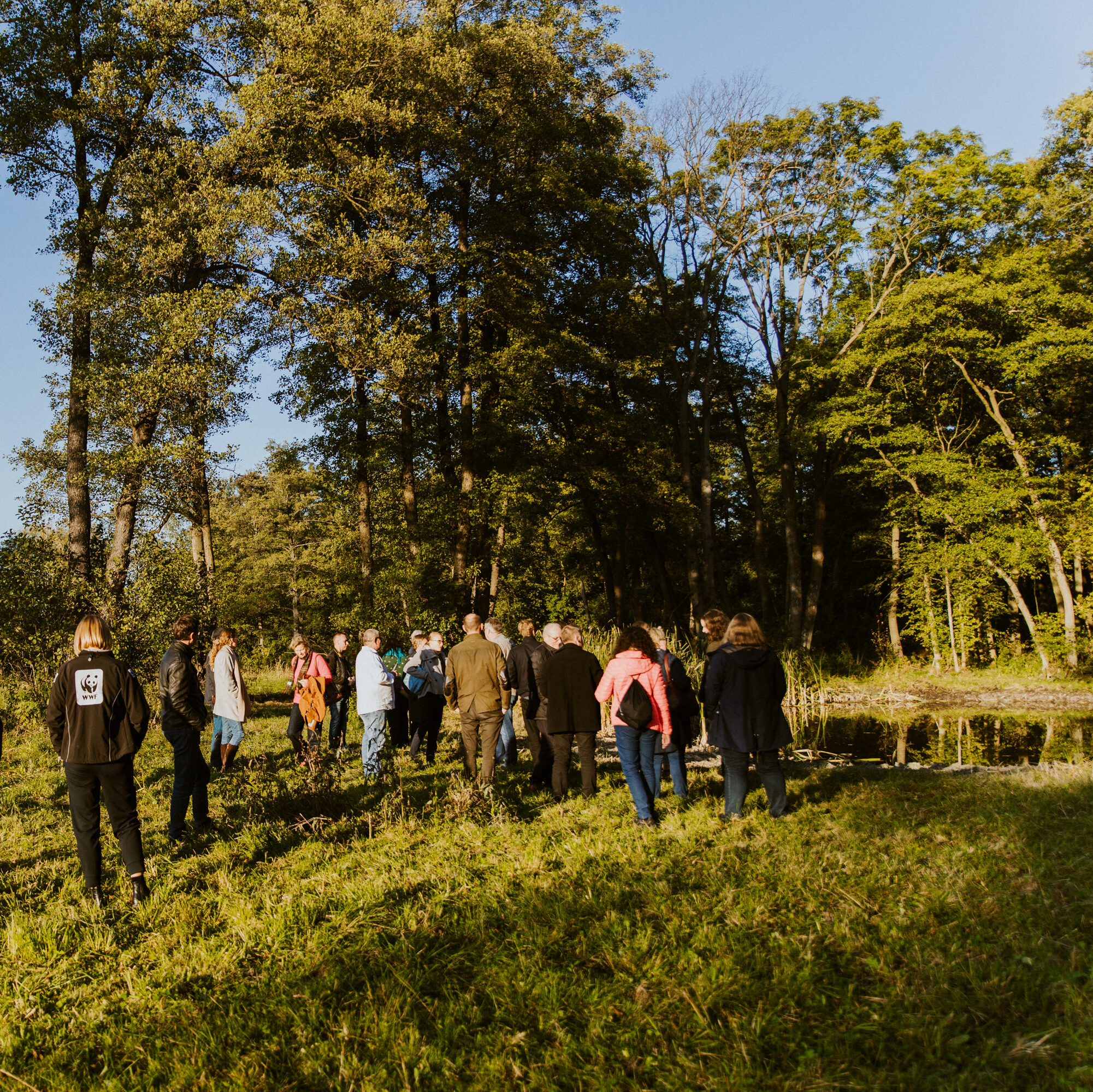Kowalski Farm is a multi-generational crop and livestock farm run by Krzysztof Kowalski, who took over operations in 1984. The farm is revered for its production of award-winning cold pressed flax and rapeseed oils, and for breeding and conserving the Zlotnicka Biala pig. Krzysztof says he inherited his current “pro-ecological” way of farming from his father and grandfather, who always managed the farm with utmost respect for the environment.
“My grandfather and father thought that nature could handle any pest and disease well – the only condition was not to disturb her,” says Krzysztof.
Krzysztof first became aware of the problem of eutrophication while he and his wife were visiting family near Goldapia Lake.
“We went swimming in the lake and noticed that the colour of the water was intensely green,” he recalls. “I learned from my family living in the area that the lake blooms every year, especially during sunny and hot summers ... I realized that this process was caused by the intensification of agriculture. This experience influenced me to use mineral fertilizers more economically.”
The purpose of my life is to give my children the farm in even better condition than when I received it from my father, and I think that will be possible.
Today, Krzysztof has many methods in place to protect against nutrient runoff. In addition to the careful and well timed application of mineral and natural fertilizers, a variety of crops are kept in rotation on the fields, including stubble crops, catch crops and fabaceae plants. Additionally, the farm has nine midfield wetlands and various buffer zones. Last year, Krzysztof and his family planted 1,080 trees along the river and between the fields – which, besides helping prevent runoff, also creates habitats for wild animals.

Krzysztof can see the positive results of his practices reflected in the land, wildlife, and economy of the farm. Every year, the water and feed are tested for nitrates and pesticides – and the results are consistently negative.
Earthworms are abundant, an indication of high soil fertility, and the farm’s 30 bee colonies are thriving. Krzysztof is also saving money on the purchase of mineral fertilizers through the alternative use of natural fertilizers – manure and slurry. Another outcome is the increased popularity of Kowalski Farm products.
“Demand is many times greater than supply,” says Krzysztof. “My products arouse great interest among farmers and students of agricultural schools. Therefore, I have built an education centre to give lectures to those who are interested.”
Winner of the Baltic Sea Farmer Award 2018
In 2018, Krzysztof Kowalski became the regional winner of the Baltic Sea Farmer Award, in recognition of his outstanding efforts to reduce nutrient runoff on his farm—and help save the Baltic Sea.
"Winning is a great surprise," Kowalski said. "It strengthens me in the belief that I have chosen the right path. I will not rest on my laurels and will continue to grow."
FARM FACTS
Location: Nasielsk in central Poland
Type of farm: Conventional crop and livestock farm (130 ha)
Main production: Pigs and various crops – including cereals, rapeseed, flax and legumes
Key practices: Nine midfield wetlands, buffer zones, midfield margins, shrubs, shelter belt, cultivation of stubble crops (peas with flax) and fabaceae plants, places for storing natural fertilizers (wall tightness checked by tests), precise fertilization, soil liming, soil testing, annual testing of fodder and water for nitrates and pesticides
International jury motivation: “The jury was impressed by the holistic approach towards sustainable crop and pig production taken by Mr. Kowalski at his farm. This farm has implemented an impressive range of measures to reduce nutrient leakage. Both measures such as midfield wetland construction and buffer zones, as well as good practices such as precise fertilization, soil liming and testing. The farm produces a traditional breed of pigs, and practices for environmentally friendly manure and slurry handling have been implemented. The farm retains and expands tree islands and forested buffers along the river and in between the fields which, in addition to reducing nutrient runoff, also protects wildlife and biodiversity. Helping pollinators by maintaining hives also contributes to keeping the farm in harmony with nature. Apart from the wide range of measures taken by Mr. Kowalski at his farm, he is also actively engaged in cooperation with other farmers to spread and communicate his experiences and knowledge, including as a member of the nationwide Network of Educational Farms.”

